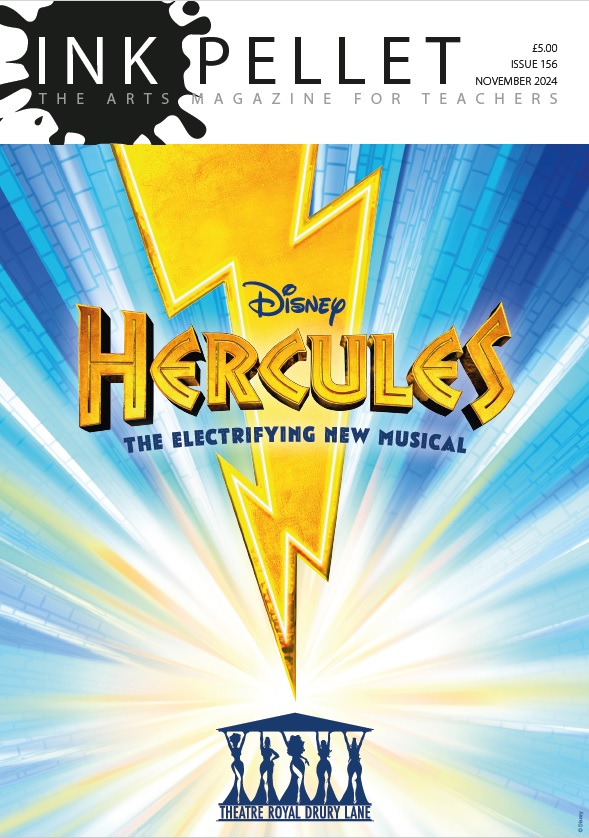Susan Elkin chats to Michael Oakley, director of the current Playing Shakespeare with Deutsche Bank production of Much Ado About Nothing at Shakespeare’s Globe.
Michael Oakley is respecter and supporter of teachers. “I think they do a fantastic job and we, in the theatre, could learn a lot from them” he says. “Some teachers, for example, have been directing school plays for decades. They’ve probably done more plays than I have!” He is scathing about theatre companies (“I won’t name names”) whose projects involve going into schools to show teachers how they should be doing drama. “There is no ‘right’ way of doing it,” he says firmly.
And Michael knows what he’s talking about. After university his first ever “proper” job was working as assistant director on the first play in the Playing Shakespeare with Deutsche Bank series. It, too, was Much Ado About Nothing so, as an individual he has come full circle and the project is now in its twelfth year. “It’s been an amazing journey” he chuckles mentioning working with Trevor Nunn, at Bristol Old Vic, at Theatre By the Lake and many more freelance directing jobs as stepping stones along the way.
Playing Shakespeare With Deutsche Bank gives free tickets – usually about 20,000 each season – to state school secondary students from London and Birmingham to see an abridged and vibrant version of the chosen play which is also supported by teaching resources including workshops. “The scope of it has grown enormously since 2007” recalls Michael. “There are now many more performances, more tickets and more related activities than there were at the beginning”.
So why has the project returned to Much Ado About Nothing? “All Shakespeare is timeless and always topical” says Michael. “That’s the essence of its greatness but Much Ado is even more relevant now than it was 12 years ago. We talk about things today which we didn’t then. The tensions in the play relate to gender, equality and honour – all very here and now. The love story isn’t really central and it certainly isn’t a fun romantic comedy.”
Oakley has abridged the text himself. “It’s not difficult to cut the prose sections and a substantial part of Much Ado is not in verse” he says pointing out that you can often drop, for instance, Shakespeare’s third example without losing anything important. “On the other hand, it’s quite a challenge to cut iambic pentameter while retaining both sense and rhythm”.
He argues that it is essential to retain Shakespeare’s language. “If you modernise it you lose Shakespeare and it turns into a reworking rather than a production of the play” he says. “Shakespeare didn’t make up his own stories so if you reduce a play to the story then he’s no longer there. He was interested in human behaviour and interaction and that’s what makes him a genius” enthuses Michael stressing that none of this detracts from the importance of the story telling.
He isn’t a dictatorial director. “You need a framework of ideas, a sort of skeleton, then you let the interpretation evolve through collaboration with the actors. And for that you need the right people. 80% of good directing is casting”. Of course, he’s confident that “his” Much Ado is well cast. When I met him, they were in the third week of rehearsals and the cast was working with an interpreter because two performances are to be signed in British Sign Language.
“We’ve set Much Ado in a sort of celebrity, fashion conscious world which we think teenagers understand and relate to.” Michael explains. “Most of the characters in this play are ‘important people’ and they know that’s what they are. It’s an elitist, aristocratic society. But they’re also human. I tell my actors simply to ‘be’ their characters”.
And in order to stay attuned with teachers and to keep his cast mindful of their schools’ audiences Michael’s cast have themselves taken part in a school-style workshop. “Assistant director, Tom Davey, who played Don Pedro 12 years ago, is also a facilitator who is leading some of this year’s workshops in schools. So he did one for the cast. “It was very useful for them to be helped to think about, for example, themes because that’s not usually what actors do.” Says Michael who has also attended a CPD workshop for teachers based on the play.
This year teenage audience members are to be interactively invited to record a digital vote on some of the questions Shakespeare leaves unanswered. For example, Claudio jilts Hero at the altar because he chooses to believe a malicious rumour about her. The Play forgives him. Do you?
Michael points out humbly that when you stage a Shakespeare play for an adult audience you know that three quarters of them have probably seen the play before. They come, therefore, with expectations, experience and knowledge. “But when you do it for teenagers it’s the other way around. The majority will not have seen Much Ado before and for some this will be a first experience of live theatre.” So, as the Globe heaves with noisy groundling excitement the atmosphere is probably close to how it was when the play was first staged in a similar theatre 400 years ago. And for me it doesn’t get much better than that!
The Playing Shakespeare with Deutsche Bank production of Much Ado About Nothing runs at the Globe until 21 March. www.playingshakespeare.org



